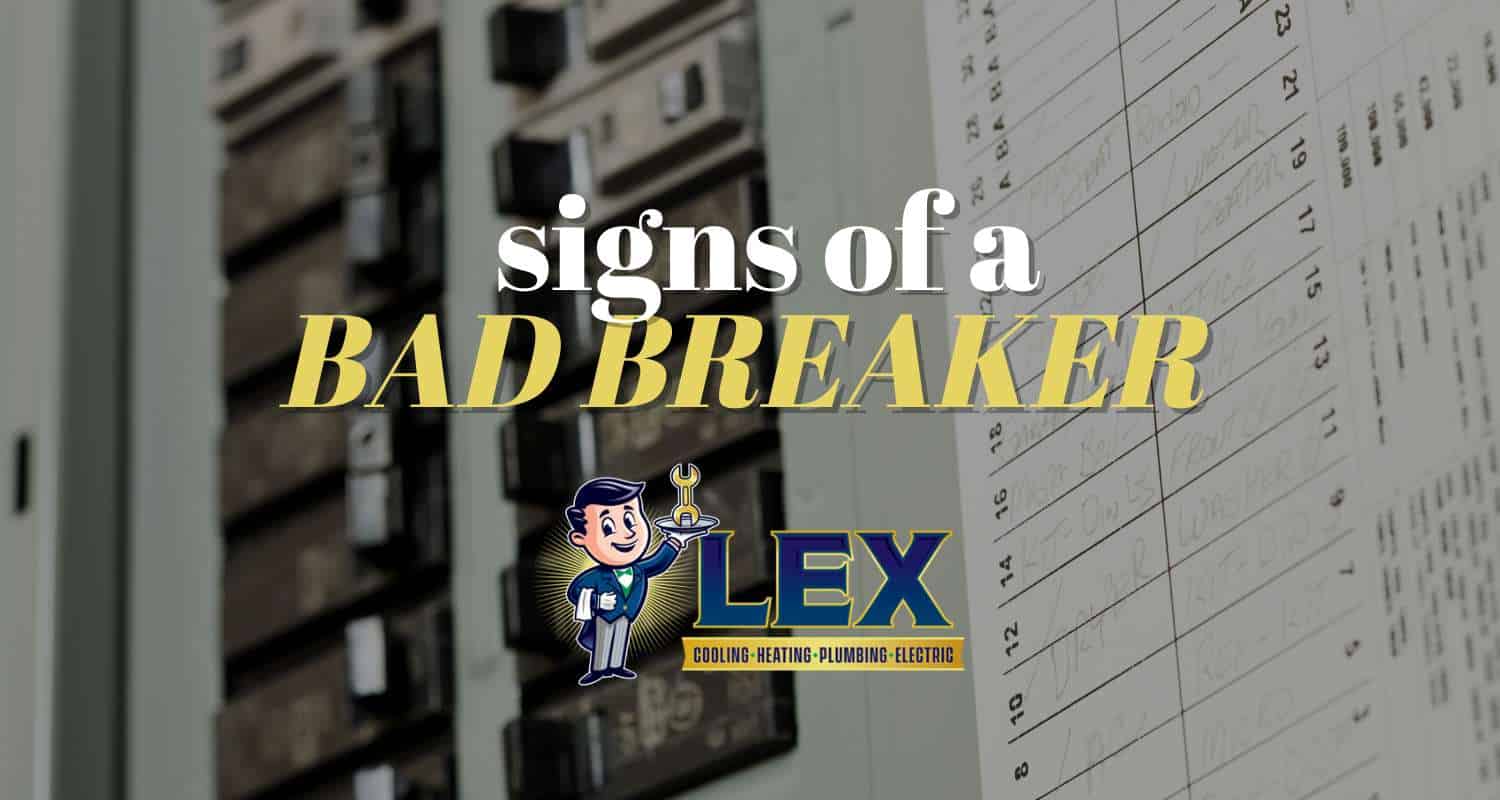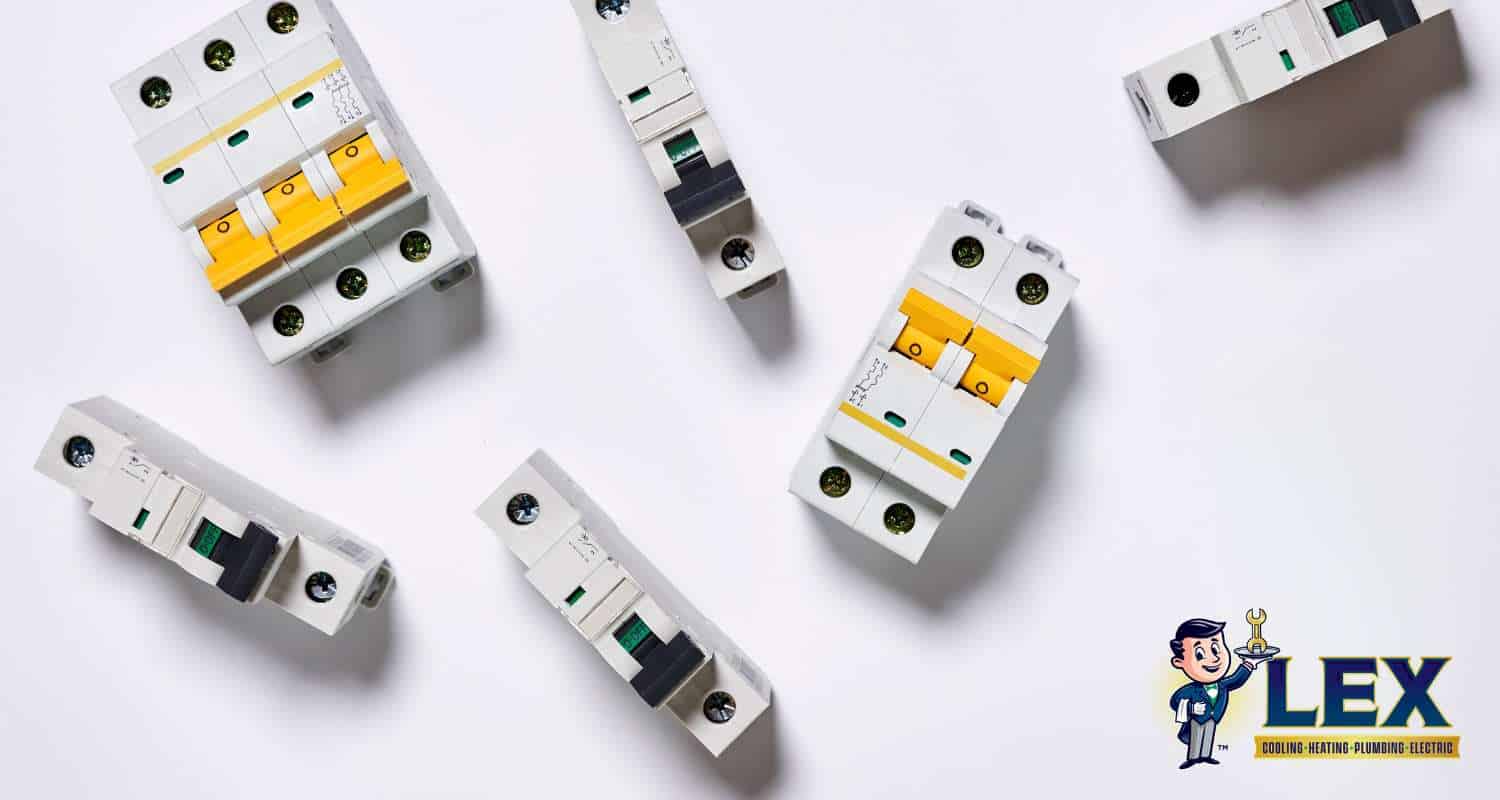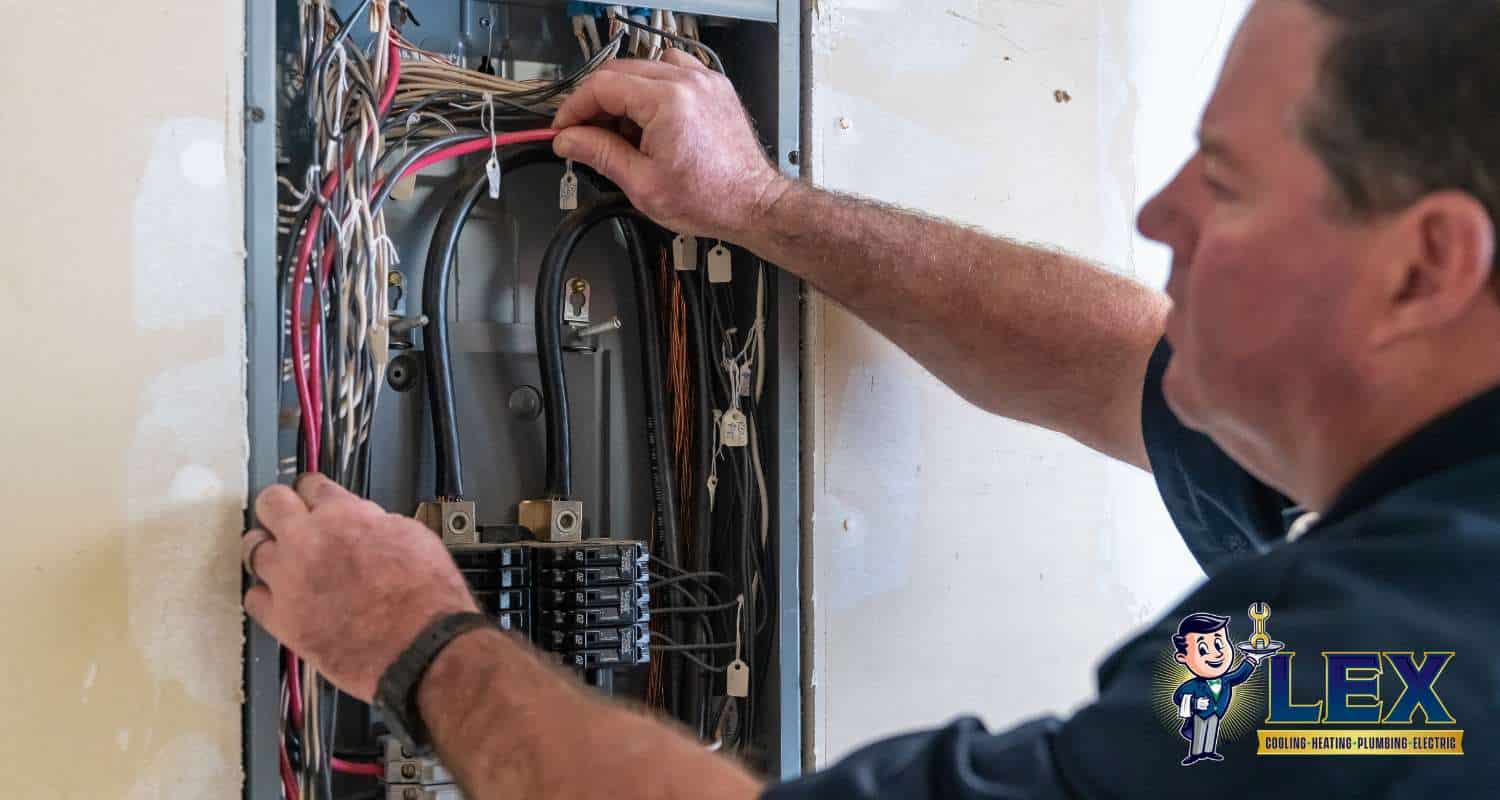When it comes to your home’s electrical system, being aware of the signs of a bad breaker can mean the difference between safety and potential disaster. At Lex Electric in Carrollton, we understand the importance of recognizing these warning signals early to ensure your electrical system remains safe and efficient.
Circuit breakers are designed to protect your electrical circuits from overloads and short circuits, but when they fail, they can lead to serious hazards such as electrical fires or equipment damage. If you suspect you have a bad breaker or are experiencing any unusual issues with your home’s electrical panel, don’t hesitate to reach out to a Carrollton electrician at Lex Electric.
Call (972) 217-8955 or reach out online to schedule a free quote or repairs with us today!
What is a Circuit Breaker?
A circuit breaker is an essential safety device in your electrical system that helps prevent electrical overloads and short circuits. It works by automatically cutting off the electrical flow when the current exceeds safe levels, protecting your home or business from potential hazards like fires or damaged appliances.
There are several types of circuit breakers, including standard circuit breakers, ground fault circuit interrupters (GFCIs), and arc fault circuit interrupters (AFCIs). Standard breakers protect against overloads and short circuits and are installed within your home’s electrical panel. Both GFCIs and AFCIs are installed within outlet boxes and are designed to protect against various electrical hazards. GFCIs are designed for wet areas, and AFCIs detect dangerous electrical arcs.

How Do Circuit Breakers Work?
Circuit breakers work by monitoring the flow of electrical current through a circuit. If the current exceeds the safe limit due to an overload or short circuit, the breaker automatically trips, cutting off the power to prevent damage or fire hazards.
Inside, the breaker uses either a thermal or electromagnetic mechanism to detect the excess current and disrupt the electricity flow, protecting your home and appliances. Once the issue is resolved, the breaker can be reset to restore power.
Do Circuit Breakers Go Bad?
Yes, circuit breakers can go bad over time. When they fail, they may not trip properly, which can lead to overheating, electrical fires, or damage to appliances and wiring. A faulty breaker may also cause frequent power interruptions or fail to reset, leaving parts of your home or business without power. It’s important to address any signs of a bad circuit breaker to ensure your electrical system operates safely and efficiently.
How Long Do Circuit Breakers Last?
Circuit breakers typically last between 30 to 40 years under normal conditions. However, factors like frequent power surges, electrical overloads, or exposure to moisture can shorten their lifespan. External elements such as poor installation, corrosion, or damage from pests or extreme weather can also accelerate circuit breaker failure.
Regular electrical maintenance can help extend longevity and ensure your circuit breakers function properly. Additionally, addressing electrical issues as soon as they arise can help extend the life of your breaker panel.
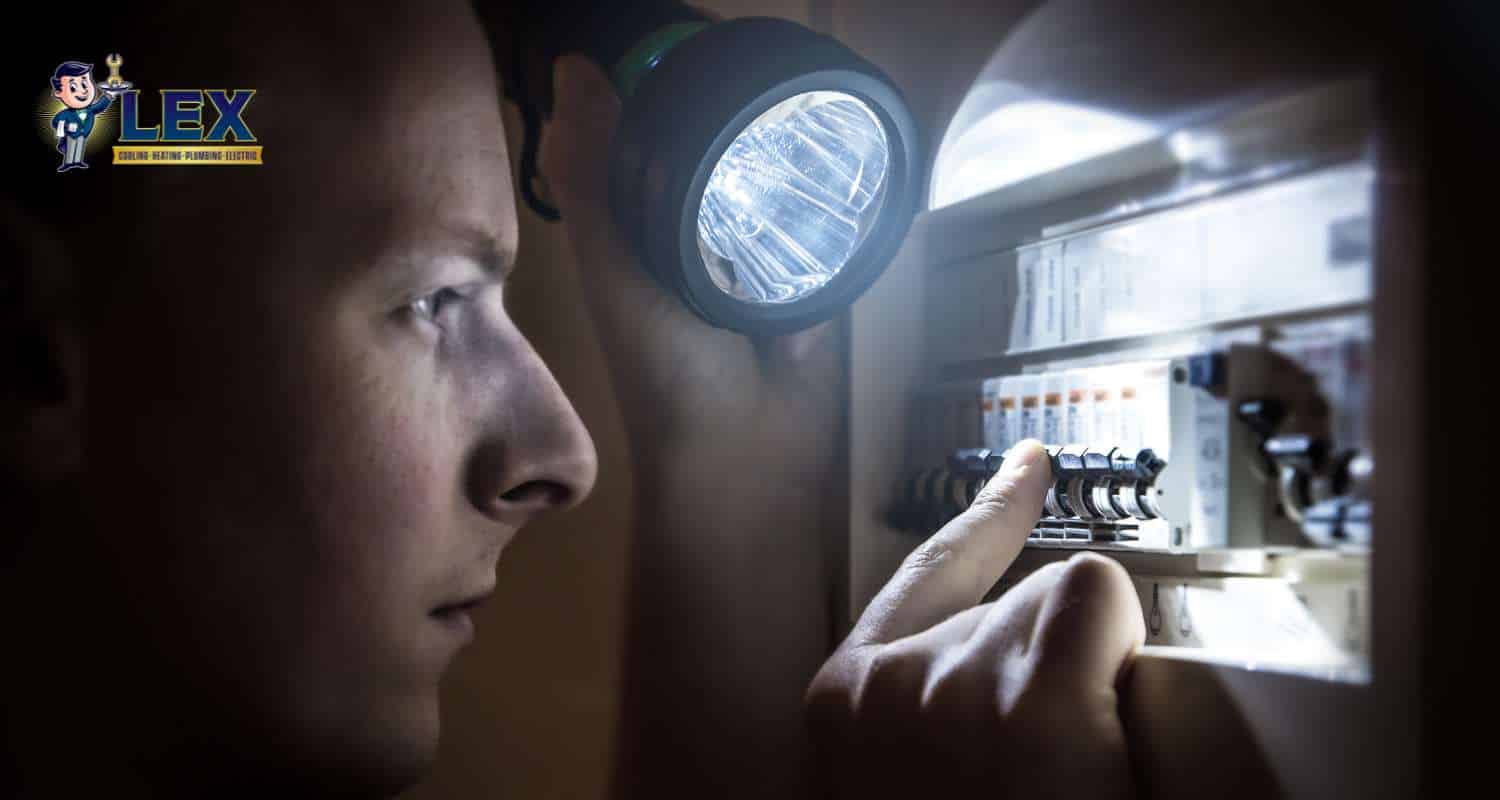
How To Tell if a Breaker is Bad
There are several clear signs that can help you determine if a circuit breaker is bad. From physical indicators to electrical symptoms, these warning signals are important to recognize in order to prevent further damage to your electrical system. Below are some of the most common bad circuit breaker symptoms to look out for in your home or business.
Frequent Breaker Trips
If your circuit breaker trips frequently, it could be a sign of an underlying problem. While occasional trips may occur due to electrical faults and overloads, consistent tripping could point to a failing breaker that can no longer handle the current load properly. This could be due to wear and tear or an internal malfunction that requires replacement.
What Does a Tripped Breaker Look Like?
A tripped circuit breaker will typically have its switch in a neutral or middle position, between “on” and “off.” Some breakers have a visible indicator, like a red or orange marker, showing that the breaker has tripped. In a breaker panel, the switch for the tripped circuit will stand out, as it won’t be fully aligned with the others that remain in the “on” position.
Is it Dangerous if a Circuit Breaker Keeps Tripping?
Yes, it can be dangerous if a circuit breaker keeps tripping. Frequent tripping often signals underlying electrical problems, such as an overloaded circuit, faulty wiring, or a failing breaker. Ignoring this problem can lead to overheating, electrical fires, or damage to electrical appliances.
Can a Breaker Be Bad and Not Trip?
Yes, a circuit breaker can be bad and not trip. In some cases, a faulty breaker may fail to respond to overloads or short circuits, allowing excessive current to flow without interruption. This situation poses significant safety risks, as it can lead to overheating, damage to wiring, or even an electrical fire.
Burning Smell or Scorch Marks
A burning smell or visible scorch marks around your breaker box is a serious sign that your breaker may be failing. This indicates excessive heat, often caused by an overloaded or faulty breaker that is no longer able to protect the circuit. Immediate attention is needed to prevent a potential fire.
Strange Buzzing or Cracking Sounds
If you hear buzzing or cracking noises coming from your breaker, this could mean that the electrical wiring connections inside your breaker box are loose or the breaker is struggling to function. These sounds are abnormal and should be investigated right away, as they could indicate a dangerous electrical fault.
Is a Buzzing Fuse Box Dangerous?
Yes, a buzzing fuse box can be dangerous. The buzzing sound often indicates that there is an electrical issue, such as loose connections, overheating components, or even electrical arcing, which can lead to serious hazards like an electrical fire.
If you hear buzzing or any unusual noises coming from your fuse box, it’s essential to turn off the power and consult a qualified electrician immediately to assess the situation and prevent potential dangers.
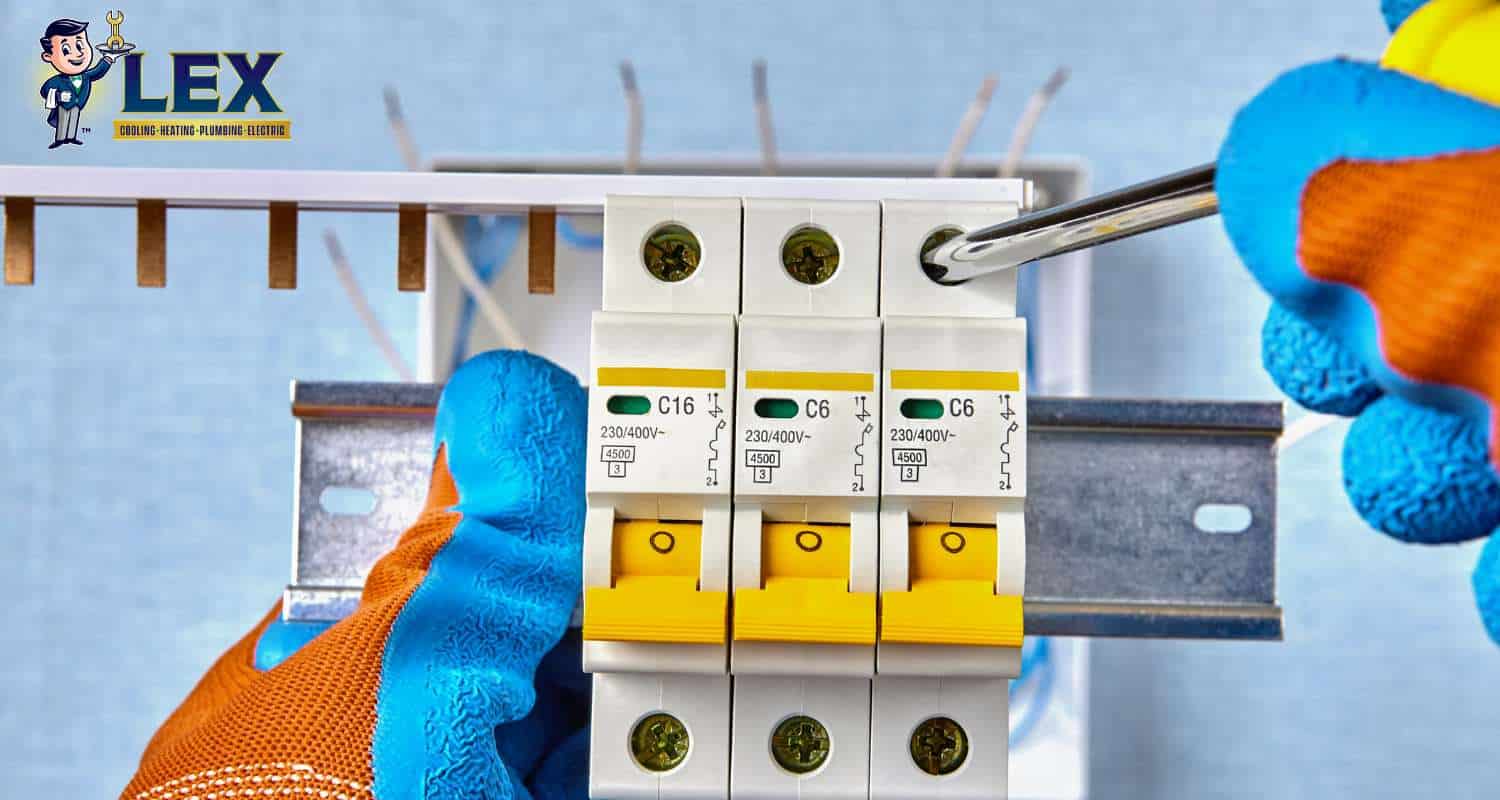
Visible Damage to the Breaker
If you notice any visible damage to your circuit breaker, such as cracked, frayed, or melted wiring, or signs of corrosion or overheating, it’s likely that the breaker has gone bad. Damaged breakers can’t reliably control the electrical current, posing safety risks and requiring immediate replacement.
Breaker Won’t Stay Reset
A breaker that constantly trips and won’t stay reset is a clear indication of a problem. This could mean the breaker is no longer functioning properly, and resetting it won’t resolve the issue. In these situations, you may need to replace the faulty circuit breaker in order to restore the power supply to the affected area of the home.
How to Reset Breaker Box
To reset a breaker box, first locate the circuit breaker that has tripped, which will typically be in a neutral position or show a red or orange indicator. Start by turning the breaker switch fully to the “off” position. After that, firmly switch it back to the “on” position.
You should hear a click when it resets. Finally, check to see if the power has been restored to the affected area. If the breaker trips again immediately, it’s important to consult an electrician to identify and address the underlying issue.
Flickering Lights or Power Outages in Specific Areas
If lights flicker or power intermittently cuts out in certain parts of your home, it could be due to a failing circuit breaker. When a breaker is not operating correctly, it may struggle to maintain a steady flow of electricity to certain circuits, resulting in inconsistent power distribution. This can cause these irregular power issues, such as lights brightening, dimming, flickering, or going out altogether, signaling the need for inspection or replacement.
Are Dimming Lights Dangerous?
While dimming lights may be a sign of certain underlying electrical issues, they are not inherently dangerous on their own. However, while the lights themselves don’t pose a danger, fluctuating or dimming lights may indicate problems such as overloaded circuits, faulty wiring, aging fixtures, or bad circuit breakers, which could be a problem.
If the dimming is persistent or accompanied by other signs, like flickering or buzzing sounds, it’s important to have a qualified electrician evaluate the situation. Addressing these issues in a timely manner can help prevent potential hazards, including electrical fires or damage to your home’s lighting system.
Breaker Feels Hot to the Touch
If a circuit breaker feels unusually hot to the touch, this could indicate that it’s overheating, which is a sign of failure. A properly functioning breaker should not generate excessive heat. This overheating could lead to serious safety issues, such as an electrical fire, and the defective circuit breaker should be inspected or replaced immediately.
Circuit Breaker Age
As circuit breakers age, their components can wear down, making them less effective at protecting your electrical system. If your breaker is several decades old, it’s more likely to fail or become unreliable. Even without noticeable damage, an older breaker may need to be replaced to maintain electrical safety.
When to Call a Professional Electrician for Breaker Issues
It’s essential to call a professional electrician for breaker issues if you experience frequent tripping, burning smells, visible damage, or persistent flickering lights. Repairing faulty circuit breakers yourself can be dangerous due to the risk of electrical shock, fire hazards, or worsening the problem if not done correctly.
Licensed electricians have the expertise to accurately diagnose and address electrical issues, ensuring the repairs are safe and compliant with local codes. Hiring a professional not only protects your safety but also provides peace of mind that the job will be done correctly and efficiently, reducing the likelihood of future problems.
Carrollton Circuit Breaker Replacement
If you’ve got a bad breaker, you’ve come to the right place. At Lex Electric, we offer comprehensive electrical panel services in Carrollton, TX, focusing on circuit breaker troubleshooting and replacement, electrical panel upgrades, and emergency services for urgent breaker issues.
Our skilled technicians are equipped to diagnose circuit breaker problems efficiently and repair them correctly, so you can rest easy knowing your electrical panel is in the hands of experts. We also understand the importance of reliable electricity, which is why we provide prompt emergency services to address critical issues before they escalate.
When you choose Lex Electric, you choose a team of experts dedicated to delivering high-quality workmanship and exceptional customer service throughout the DFW area. With our expertise, you can trust that your Carrollton breaker box replacement needs will be handled with the utmost care and professionalism.
Bad Circuit Breaker? Call the Carrollton Electricians at Lex Right Away
A bad circuit breaker can compromise your electrical system’s safety and efficiency, leading to more significant problems down the line. If you’re experiencing issues with your circuit breaker, such as frequent tripping, unusual sounds, or visible damage, don’t hesitate to reach out for professional assistance.
At Lex Electric, our experienced Carrollton electricians can diagnose and resolve a variety of electrical issues. In addition to electrical services, we also provide the residents of Carrollton and the DFW area with plumbing, heating, air conditioning, and indoor air quality services. Rest assured, we at Lex are here to provide you with the professional HVAC, plumbing, and electrical solutions you need.
Call an electrician on our team at (972) 217-8955 or contact us via our website to schedule a free quote or to schedule repairs with us today!

